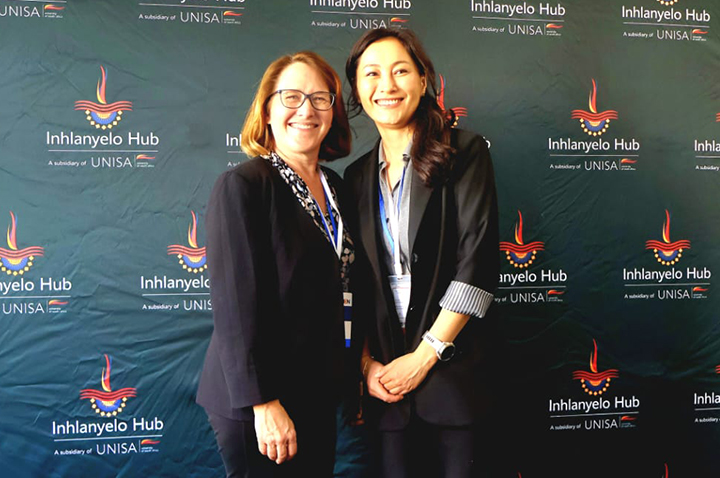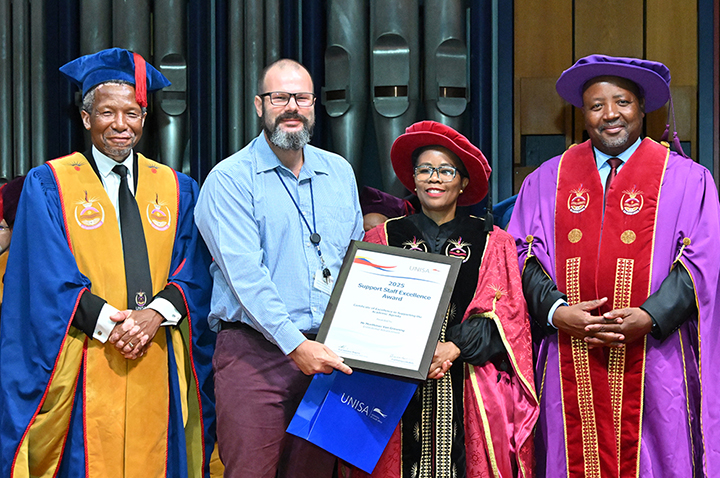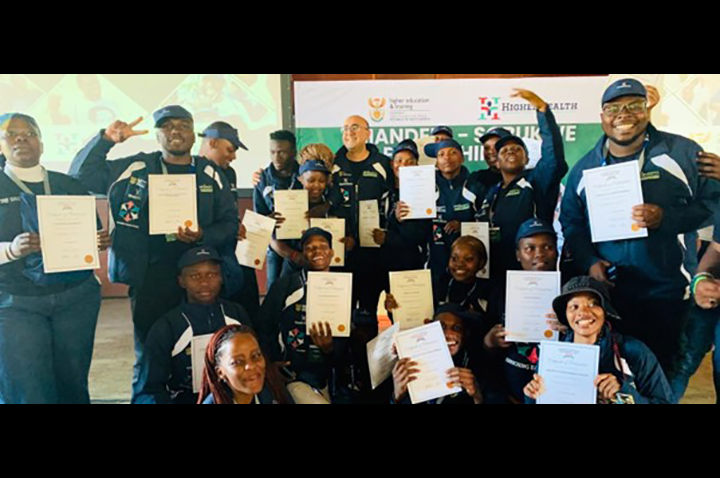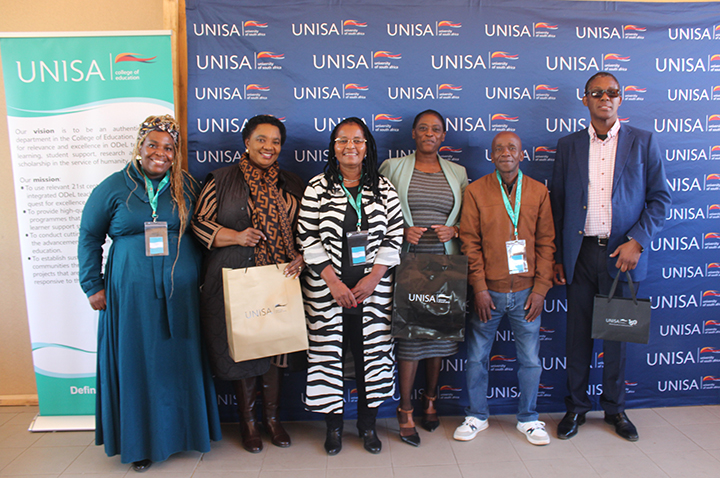

From left: Dr Mahmood Akbari, Dr Lazarus Chapungu and Prof Jessica Murray
Living up to the commitment of amplifying the voices of Unisa postgraduate students and emerging researchers, the College of Graduate Studies (CGS) created an interactive platform through the Virtual Catalytic Niche Area (CNA) Roundtables for the group to reflect on the CNAs’ intersections and overlaps.
Further sharing the challenges and opportunities they face, especially in interdisciplinary work and supporting the next generation of researchers, the engagement succeeded the recent two-day CNA Research Symposium. The symposium was an interactive platform that enabled stakeholders from academia, industry, government and civil society to engage in robust conversations to advance Unisa’s efforts in conducting solution-oriented research that shape Africa’s intellectual futures and humanities for sustainable development.
The roundtables’ panellists, coming from Unisa’s colleges, regional centres and the Thabo Mbeki School of Public and International Affairs, were immersed in the CNAs. The sessions unpacked how human being move around, empower themselves, connect to the world and the universe around them, and how they advance aerospace innovation or transform the automotive sector. They also explored finding cleaner energy solutions and transforming how people live and work through digital technologies.
The first roundtable was led by Dr Mahmood Akbari, CGS’s Senior Postdoctoral Researcher, covering the Aviation and Aeronautical Studies, Automotive Studies, Energy Studies, Space Studies and Square Kilometre Array, and Fourth Industrial Revolution and Digitalisation CNAs.
Chaired by Dr Lazarus Chapungu, Postdoctoral Research Fellow from the College of Economic and Management Sciences, the second roundtable focused on Marine Studies, Natural Sciences/Biotechnological Studies, Health Studies, Feminist/Womanist/Bosadi Theorisations, and Student Support and Co-curricular Activities CNAs.
In her opening remarks, Prof Jessica Murray of CGS, said: "Each CNA plays a key role in shaping South Africa's future, and they also present an opportunity to empower the next generation of postgraduate students and emerging researchers."
From the deliberations, postgraduate students and emerging researchers acknowledged the CNAs as powerful role players on the global sphere. They further asserted that the sessions equipped them with relevant skills needed to produce the most appropriate, timely and dynamic groundbreaking research focused on addressing societal challenges and transforming lives for the better.
For them, they are also empowered to make an impact on decision making and on the implementation of CNAs, as well as to contribute to active problem solving within communities by co-creating research agendas with external stakeholders. This fosters a culture of involvement in inter-, trans- and multidisciplinary research engagements among scholars, and between them and society, industry and the government.
Propelled to move from conceptualisation to operationalisation of the CNAs, the panellists spoke strongly on establishing contributions that are not just relevant in producing journal papers, but also impactful at grassroots level.
In terms of indigenous knowledge systems, they emphasised the need to re-evaluate who defines the terms and how these terms have silenced local indigenous knowledge contributions. This raised an urgent call for African scholars to develop their own terms and theorisations that can help understand African experiences, thereby producing research that is appropriate and impactful locally.
Furthermore, they reiterated the need to explore technologies through, among others, the ethical use of artificial intelligence in enhancing research. They also urged the institution to embark on training programmes for upcoming researchers on the ethical use of technologies.
* By Mpho Moloele, PR and Communications, Department of Research, Innovation and Commercialisation
Publish date: 2025-10-14 00:00:00.0
 Unisa roundtable focuses on empowering SA women to lead in innovation
Unisa roundtable focuses on empowering SA women to lead in innovation
 Unisan recognised for web excellence
Unisan recognised for web excellence
 Office of the Dean of Students participates in leadership camp
Office of the Dean of Students participates in leadership camp
 Unisa project fosters digital and pedagogical innovation in Limpopo schools
Unisa project fosters digital and pedagogical innovation in Limpopo schools
 Unisa student wins prestigious national leadership award
Unisa student wins prestigious national leadership award